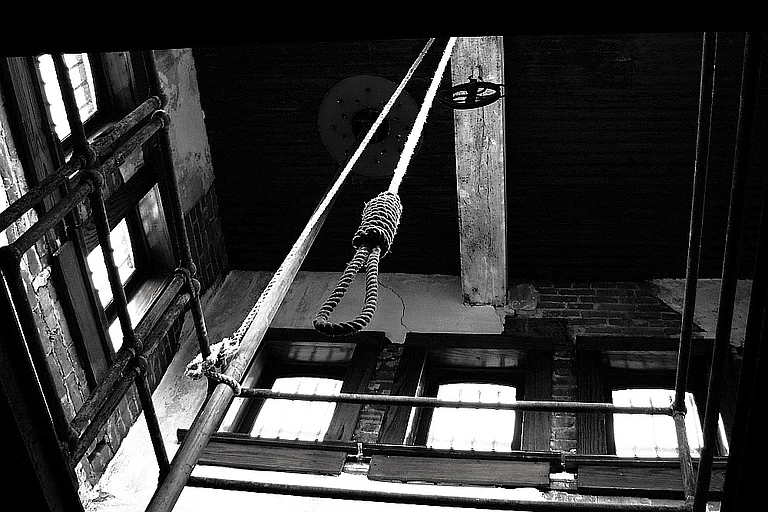Despite claims of widespread reforms, the rate of capital punishment remains high in the Kingdom of Saudi Arabia. With Saturday's execution of a Yemeni national convicted of smuggling drugs, the Gulf kingdom has executed 101 foreign nationals in 2024.
This is the highest number of executions of foreigners in a single year in Saudi Arabia’s history, according to the AFP news agency. This figure is roughly three times the number of foreigners executed in 2023 and 2022, when 34 foreigners were put to death each year.
Activist groups claim that the cost of reforms in the Kingdom has been steep, with a complete crackdown on the crown prince's political opponents and no tolerance for dissent.
Also Read | A Case Against Death Penalty
The foreigners executed this year included 21 from Pakistan, 20 from Yemen, 14 from Syria, 10 from Nigeria, nine from Egypt, eight from Jordan, and seven from Ethiopia. Additionally, there were three each from Sudan, India, and Afghanistan, as well as one each from Sri Lanka, Eritrea, and the Philippines.
Saudi Arabia has long faced criticism for its use of the death penalty, which human rights organisations have condemned as disproportionate and out of step with the country’s efforts to soften its strict image and attract international tourists and investors.
According to Amnesty International, the oil-rich kingdom executed the third-highest number of prisoners in the world in 2023, trailing only China and Iran.
What Crimes Are Punishable By Death In Saudi Arabia?
Saudi Arabia uses the death penalty for a variety of offences across three categories in Islamic law: Qisas (retributive), Had (mandatory), and Ta’zir (discretionary). Within these categories, Saudi courts retain wide-ranging powers to determine what behaviour may constitute a criminal offence and its resulting punishment, including the death penalty.
According to the campaign group Reprieve’s 2023 report, "Bloodshed and Lies: Mohammed bin Salman’s Kingdom of Executions," between 2010 and 2021, the types of crimes resulting in executions could be classified into the following groups: murder, drug trafficking, sexual offences, formation of or membership in an organised criminal group or proscribed group, kidnapping or false imprisonment accompanied by assault, burglary or robbery, sedition, treason and other state security offences, and witchcraft and sorcery.
Of the total 214 individuals publicly reported as having been executed so far in 2024 (as of 9 October), 59 were executed for drug-related crimes, 46 of whom were foreign nationals, according to ALQST, Amnesty International, the European Saudi Organisation for Human Rights (ESOHR), and Reprieve.
According to Human Rights Watch, the Saudi authorities have also used the death penalty to stifle dissent in the online sphere. Based on data collected since 2010, Reprieve, along with ESOHR, has found that:
-Saudi Arabia's execution rate has nearly doubled since King Salman took the reins in 2015, appointing his son Mohammed bin Salman to key positions.
-The death sentence has often been used to silence dissidents and protestors, in violation of international human rights laws, which specify that it should only be used for the most serious offences.
-At least 11 people who were initially jailed as children have been executed since 2015, despite Saudi Arabia's repeated claims that it is reducing the use of the death sentence against minors.
International law requires states that retain the death penalty to limit its application to “the most serious crimes,” which are widely accepted to mean intentional killing.




















.png?w=200&auto=format%2Ccompress&fit=max)






